- About Ramapo
- Academics
- Admissions & Aid
- Student Life
- Athletics
- Alumni
- Arts & Community
- Quick Links
- Apply
- Visit
- Give
Ramapo International
Session Description: Join us for a discussion about linguistics, to discover how it collaborates with other disciplines through its various research fields. And to learn how languages can change your world view.
 Presenter Bio: Arwa Ayoub is a Fulbright scholar at Ramapo College where she teaches Arabic. Born and raised near Haifa, Israel, she received a Bachelors in Generative Linguistics from the Hebrew University of Jerusalem and a Masters In Translation and Research of Translation from Bar-Ilan University in Ramat Gan.
Presenter Bio: Arwa Ayoub is a Fulbright scholar at Ramapo College where she teaches Arabic. Born and raised near Haifa, Israel, she received a Bachelors in Generative Linguistics from the Hebrew University of Jerusalem and a Masters In Translation and Research of Translation from Bar-Ilan University in Ramat Gan.
JOIN WEBEX MEETING: https://ramapo.webex.com/ramapo/j.php?MTID=m082e9919f69bc09bda1a99c80985e3d6
Meeting number (access code): 185 827 9180
Meeting password: RGT-Linguistics
Co-Sponsored by: Roukema Center for International Education, Ramapo Library, Ramapo Provost’s Office and the Ramapo School of Humanities and Global Studies.

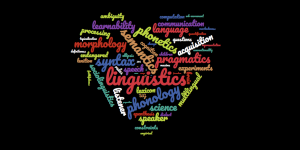
Session Description: We will explore the history and culture of southeastern Europe and former Yugoslavia within the context of the Balkan war, which took place from 1991-1995. You will be provided with some historical context followed by an open conversation held by Nada Raic and Ivana Bajurin, API Croatia Resident Directors, who were teenagers at the time. They will share their personal experiences about their daily life (family, school, food, etc.), the conflicted emotions (hate, misery, fear, love) and the survival and coping strategies they learned. Do not miss the opportunity to learn about a conflict that took place in the heart of Europe not long ago from 2 women that experienced it first-hand, and who, despite the difficulties, have cultivated a fantastic sense of humor!
Presenters’ Bios:
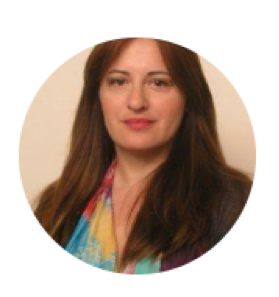
Nada Raic – Nada was born in Mostar, Bosnia and Herzegovina in 1976. She spent her childhood in a multiethnic environment where Croats, Bosnian and Serbs lived peacefully. She was attending medical high school when the war in Bosnia and Herzegovina started. She lived under siege for two months after which she seeked refuge in North Dalmatia. She graduated in 2000 with a double Masters degree in Philosophy and History of Croatian Culture. She was part of the team who established the 1 st private University in southeastern Europe in the early 2000s. Nada has spent her entire career in the field of International Education, and has worked for API since 2013. Her special interest is interfaith and intercultural dialogue. She loves to travel and meet new people.
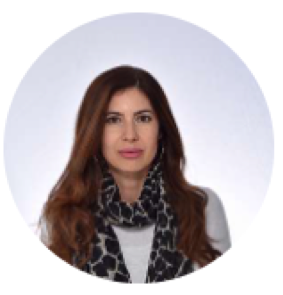
Ivana Bajurin – Ivana was born in 1977 in Dubrovnik, Croatia (ex-Yugoslavia). As a child of diplomats, she spent several years living in Havana (Cuba) and later in Trieste (Italy). Her experiences living and being educated abroad fostered her interest in different cultures and languages. She returned to Dubrovnik in 1991 and enrolled in high school when the 4-year war started. Her house was damaged during the bombardment and she was forced to seek refuge first in Slovenia and later in Austria. After getting a BA degree in the Faculty of Tourism, Ivana worked for the largest Croatian travel agency in Dubrovnik. She has worked with API for 7 years, loves her job and the opportunity to engage with younger generations.
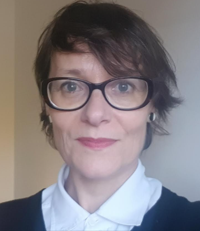 Pilar Llamas (Moderator) – Pilar Llamas is a native southern Spaniard (Almería). She has spent the last 20+ years linked to international education and particularly to study abroad where she has been directly responsible for running programs on-site in Granada (Spain) and for the development of programs and training of Resident Directors in multiple countries with API. Her study abroad experience, first in England and later in the U.S. while earning an MA degree, profoundly influenced her career and life. Her firm belief that the exposure to other cultures has a deep positive impact on the world has been the engine that has fueled her career and her life.
Pilar Llamas (Moderator) – Pilar Llamas is a native southern Spaniard (Almería). She has spent the last 20+ years linked to international education and particularly to study abroad where she has been directly responsible for running programs on-site in Granada (Spain) and for the development of programs and training of Resident Directors in multiple countries with API. Her study abroad experience, first in England and later in the U.S. while earning an MA degree, profoundly influenced her career and life. Her firm belief that the exposure to other cultures has a deep positive impact on the world has been the engine that has fueled her career and her life.
Register/Join Zoom session: https://us02web.zoom.us/meeting/register/tZYufu6gqzMvHNDZQwz1QGV5mta-Y7kzYItv
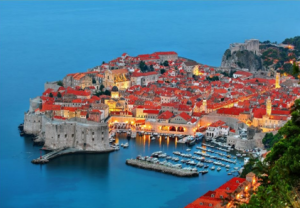

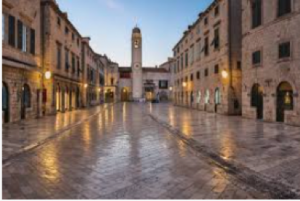

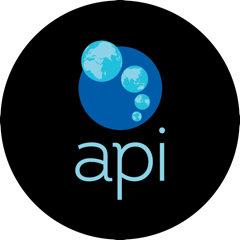 Co-sponsored by: The Roukema Center for International Education, the George T. Potter Library, Ramapo Provost Office, and Academic Programs International (API).
Co-sponsored by: The Roukema Center for International Education, the George T. Potter Library, Ramapo Provost Office, and Academic Programs International (API).
Presentation Description: In the last one year, India has witnessed two major protest movements against the government led by the Hindu-nationalist Bharatiya Janata Party. Both movements erupted following the laws passed by the government without enough consultation with the people these laws will directly impact. Interestingly, both movements were spearheaded by the marginalised social groups that have been at the receiving end of Modi government’s politics. The anti-Citizenship Law movement was led by Muslim women and anti-Farm laws protests by the farmers. In the past six years of the Modi rule, the government has aggressively implemented its Hindu majoritarian agenda by trying to change the basic structure of the constitution, suppressing religious minorities and criminalising free speech. Sadly, the political opposition has largely been ineffective and key institutions including the judiciary have remained a mute spectator. The media has gone a step further and has literally become an arm of the state’s propaganda machinery. In the face of this assault, will the people and their resistance be able to save the Indian democracy and its basic tenets? The talk will analyse:
- The role of the protests movements and the future of democratic resistance in India, and to what extent they have been able to challenge the authoritarian actions of the government.
- How the politics of majoritarianism is undermining the constitution and endangering the lives and livelihoods of the religious minorities and other politically disadvantaged groups.
- The state of the mainstream media, how it is helping the BJP in spreading its anti-constitution and anti-people agenda and the emergence of alternate digital platforms media.- And finally the future of journalism in the largest democracy of the world.
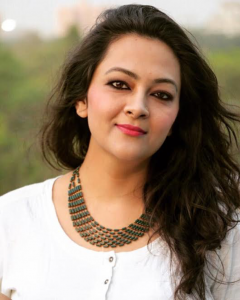 Presenter Bio: Arfa Khanum Sherwani works as a senior editor at The Wire (thewire.in), a financially and editorially independent multimedia news website published in English, Hindi and Urdu. The website mainly covers politics and current affairs, policy and governance matters, besides science journalism. Currently, she leads the multimedia team at The Wire. She has spent nearly two decades in the broadcast news sector covering politics, policy and governance issues. Her area of special interest is social justice. She hosts two popular programs on its site – ‘Arfa ka India’ (Arfa’s India) – a daily video Op-Ed on ‘news of the day’ – and ‘Hum Bhi Bharat’ (‘We Are Also India’), a weekly video program primarily devoted to the issues of people who are living on the margins of Indian democracy. Amidst the big corporate media’s monopoly over ideas, agendas and their control over ‘who would be allowed to speak’, our shows have, on many occasions, succeeded in countering the narrative, taking the debate forward or generating a new debate altogether.
Presenter Bio: Arfa Khanum Sherwani works as a senior editor at The Wire (thewire.in), a financially and editorially independent multimedia news website published in English, Hindi and Urdu. The website mainly covers politics and current affairs, policy and governance matters, besides science journalism. Currently, she leads the multimedia team at The Wire. She has spent nearly two decades in the broadcast news sector covering politics, policy and governance issues. Her area of special interest is social justice. She hosts two popular programs on its site – ‘Arfa ka India’ (Arfa’s India) – a daily video Op-Ed on ‘news of the day’ – and ‘Hum Bhi Bharat’ (‘We Are Also India’), a weekly video program primarily devoted to the issues of people who are living on the margins of Indian democracy. Amidst the big corporate media’s monopoly over ideas, agendas and their control over ‘who would be allowed to speak’, our shows have, on many occasions, succeeded in countering the narrative, taking the debate forward or generating a new debate altogether.
She is a founding member of RajyaSabha TV- the official broadcaster of the Upper House of India’s Parliament and worked there till 2017. Prior to that, she worked with NDTV for several years and was also associated with Bollywood actor Aamir Khan for his TV show, ‘SatyamevJayate’.
She has covered the Afghan elections of 2014 and the Iranian presidential elections of 2009. In 2016, she travelled to Iraq and made a documentary, ‘Jihad against ISIS’, on the ongoing conflict and the role of private militias in the country.
Awards and fellowships
- Red Ink Award for Excellence in Journalism for the Best Political Report of the year (TV category), 2019 for the interview with the godman and ‘Art of Living’ founder Sri Sri Ravishankar. The interview exposed his hypocrisy as a self-appointed mediator in the Ayodhya dispute and he subsequently filed a Rs 100 million defamation case against her and The Wire.
- Chameli Devi Jain Award for Outstanding Woman Journalist for the year -2019 for reports on Kashmir and coverage of India’s parliamentary elections.
- Robert Bosch Media Ambassadors Fellowship (2017), ‘The Rise of Right Wing Politics in Germany’
- India Representative, ‘Senior Journalists Seminar Fellowship’ by the East-West Centre, United States, 2018.
Education and leadership
Ph.D. and Master’s in political science from Jamia Millia Islamia University, New Delhi. Her doctoral thesis was a socio-political analysis of Dalits (the lowest caste group) and Muslims in India. She was invited to address the Harvard India Conference at Harvard University in February 2020. She also spoke at the Global Media Forum in Bonn, Germany (2017) on identity and diversity. She is a co-founder of South Asian Women in Media. Established in 2008, the organisation works with international rights organizations for freedom of press, increased participation of women in the media, a gender-sensitive work environment and a gender-equal outlook in the media..In its history of over 100 years, she was the second ever elected woman vice president of Aligarh Muslim University’s alumni association, a body dominated by men so far.She is an ‘Advisor in Residence’ for the Led ByFoundation, which works as a leadership incubator for Muslim women. It is a unique leadership program for young Indian Muslim women that focuses on experiential learning, collaborative networking, and financial support.
Webex link:
Co-sponsored by: The Roukema Center for International Education, the George T. Potter Library, and the Ramapo Provost Office.
Session Description: Morocco has always been able to catch the attention of travelers, explorers, and learners for its diverse cultural profile, geographic allocation, foods, and languages. The story of Morocco has been told by historians, explorers, journalists, and Moroccan immigrants themselves.
Some Moroccan immigrants suddenly become language teachers, intercultural mentors, and advisors in global education, leaning on their expertise as educators, but the majority of these migrants become intercultural educators just by crossing the borders.
The processes of sharing language and ‘culture’, food and stories with students, and host communities has been a daily practice for Moroccan migrants in Europe and North America.
Meanwhile, things are changing in Morocco while migrants (like us) are busy working and adjusting to their new environments. How do we keep the story alive, and relevant, when realities keep shifting in our countries of origin while we try to stay true to the essence and stories we teach and share.
Presenter Bios:
Jamila Chahboun: Jamila Chahboun is a Senior Lecturer of Arabic at the Department of Middle Eastern Studies at Dartmouth College and co-advisor of the Arabic Language Community-Global village at Dartmouth. She holds a Master’s degree in Social Justice in Intercultural Relations from SIT Graduate Institute (School for International Training), Brattleboro, VT. She also holds a BA in English Linguistics from Ibn Tofail University in Kenitra, Morocco.
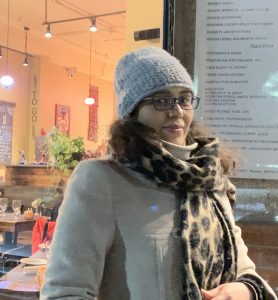 Jamila served as a language instructor and a Cross-Cultural educator and language instructor at the Center for Cross-Cultural Learning in Rabat, Morocco. She worked as a Program Coordinator for SIT Study Abroad, Elderhostel, and the Experiment in International Living (EIL).
Jamila served as a language instructor and a Cross-Cultural educator and language instructor at the Center for Cross-Cultural Learning in Rabat, Morocco. She worked as a Program Coordinator for SIT Study Abroad, Elderhostel, and the Experiment in International Living (EIL).
In 2003, Jamila served as a Fulbright Scholar where she taught Arabic at the University of Illinois at Chicago. She also worked as an Arabic instructor for undergraduate students at Marlboro College, Marlboro, VT, and at the SIT Graduate Institute in Brattleboro, VT where she helped in redesigning the Arabic language program.
Jamila has been working as a consultant and curriculum design specialist at SIT Study Abroad assisting to conceptualize and design SIT Study Abroad Arabic language programs in North Africa and the Middle East. She is a member of the Institute of Study Abroad (IFSA) Middle East Advisory Committee (MEAC) at Butler University in Indiana where she helps review Middle East Study Abroad programs and Arabic language curricula.
Jamila has been serving as an applications’ reader with the critical language scholarship (CLS), a Department of State cultural and educational exchange program. She is a member of the Middle East Studies Association (MESA) and has presented on topics related to languages and dialects in the Middle East and North Africa.
Jamila lives with her husband, Mokhtar, and their daughter in West Lebanon, NH.
Dr. Mokhtar Bouba: Dr. Mokhtar Bouba has over 20 years of experience with designing and facilitating study abroad and experiential learning programs in Morocco. He holds a Ph.D. in leadership studies and education from Franklin Pierce University in New Hampshire. His work focused on the dynamics of image and image negotiation in Sahara Desert tourism. He has written and lectured about online education, cross-culture, tourism, Amazigh (Berber) culture, current issues in North Africa, and arts. He is also an artist, educator, and indigenous methodologist. Dr. Bouba also specializes in online pedagogies and education technology.
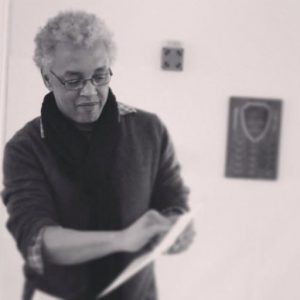 Before assuming his role of Assistant Professor and Co-Chair of the Intercultural Service, Leadership and Management program at the School for International Training Graduate Institute (SIT). Dr. Bouba was the instructional technologist for World Learning academic programs, supporting LowRes and, online and on blended programs. He had a leading role in the design and implementation of SIT’s Master of Arts in TESOL (online) low-residency program.
Before assuming his role of Assistant Professor and Co-Chair of the Intercultural Service, Leadership and Management program at the School for International Training Graduate Institute (SIT). Dr. Bouba was the instructional technologist for World Learning academic programs, supporting LowRes and, online and on blended programs. He had a leading role in the design and implementation of SIT’s Master of Arts in TESOL (online) low-residency program.
Recent study abroad programs he has led include a field course, Morocco Tourism, Space and Sustainability, offered to SIT Graduate Institute students in VT. He has served as an Academic Director with SIT Study Abroad in Jordan and as a coordinator and program development specialist at the Center for Cross-Cultural Learning (CCCL) in Rabat, Morocco. He designed and directed many exchange programs including programs with the Experiment in International Living and Rhodes Scholar.
He has advised SIT students and Fulbright scholars and taught Tamazight (Berber) and Arabic at Peace Corps, the Center for Cross-Cultural Learning in Morocco, and online. He has been an Arabic instructor at SIT Graduate Institute, where he helped re-design the Arabic language program for graduate students.
Dr. Bouba is working on a book project titled “Dynamics of Image and Image Negotiation in Moroccan Sahara Desert Tourism”, which is about the ethics and politics of representation of the Sahara and its people. He is currently a lecturer in the Middle Eastern Studies Department at Dartmouth College.
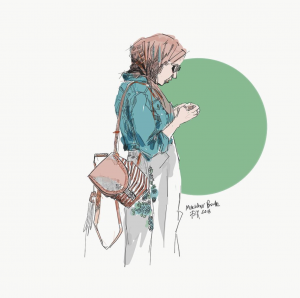
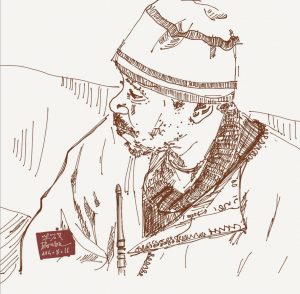
ID: 1786446938
Password: ZeiEqXvh
Password: ZeiEqXvh
Co-Sponsored by: The Roukema Center for International Education, the George T. Potter Library, the Provost’s Office, and the Global Indigenous Network.
Talk Description: What is the good life? And what makes work-life worth living? Exploring possible answers, we use positive psychology theory as a lens to zoom in on work and life in Denmark. The Scandinavian country that constantly ranks amongst the happiest countries in the world. In addition, we will explore why and how to promote “arbejdsglæde”, a Danish word for happiness at work. Awarded for nearly two decades to be one of the best small to medium sized companies to work for in Denmark and in Europe, we will use the Danish bank Middelfart Sparekasse as our case.
 Presenter Bio: Gitte Vonsild has a Master’s in Positive Psychology, minor in Psychology. M.Sc. in Economics from Copenhagen University. Gitte Vonsild is specialized in the field of Applied Positive Psychology and is a Certified Professional Co-Active Coach (CPCC) from the Coaches Training Institute, CTI. International leadership background as CFO 1997-2005 at Darguner Brauerei GmbH in Germany, a subsidiary of Harboe Group; an international beverage producer with facilities in Denmark, the Baltics, and Germany. Self-employed coach and workshop leader since 2005, and lecturer on Coaching & Counseling, Positive Psychology, Positive Psychology coaching, change theory, and stress management at Metropolitan University College, 2008-2012. With DIS since 2011 teaching the courses Positive Psychology, Positive Organizational Psychology, and The Happiness Lab.
Presenter Bio: Gitte Vonsild has a Master’s in Positive Psychology, minor in Psychology. M.Sc. in Economics from Copenhagen University. Gitte Vonsild is specialized in the field of Applied Positive Psychology and is a Certified Professional Co-Active Coach (CPCC) from the Coaches Training Institute, CTI. International leadership background as CFO 1997-2005 at Darguner Brauerei GmbH in Germany, a subsidiary of Harboe Group; an international beverage producer with facilities in Denmark, the Baltics, and Germany. Self-employed coach and workshop leader since 2005, and lecturer on Coaching & Counseling, Positive Psychology, Positive Psychology coaching, change theory, and stress management at Metropolitan University College, 2008-2012. With DIS since 2011 teaching the courses Positive Psychology, Positive Organizational Psychology, and The Happiness Lab.
WebEx Link: https://ramapo.webex.com/ramapo/j.php?MTID=mf8b913d68306c17ee659f66e1fabba49
[ID: 1788284498 Password: 2Ms33KWy]
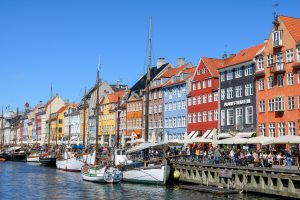
Co-sponsored by: The Roukema Center for International Education, DIS: Study Abroad in Scandinavia, the George T. Potter Library, and the Ramapo Provost Office.
Program Description: While the spread of COVID-19 has posed a huge challenge to the whole world, its impact on ethnic, religious, and sexual minorities has been far more severe. In countries like India, existing poverty, traditional biases, and discriminatory policies by those in power has inflicted even more wounds on the already disadvantaged communities. It has resulted in undermining of various constitutional and human rights protections including the right to equality, right against discrimination, freedom of expression, right to health, and most importantly right to life and personal liberty. This lecture will highlight how the pandemic has caused further marginalization of minorities in India with specific reference to the Muslim community.
Presenter Bio:
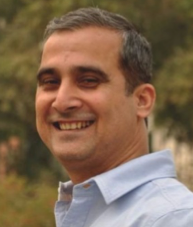 Dr Azim Khan is a professor of health and human rights with a zeal for social activism. Currently, he is working as Chair-MA Global Health program and an Academic Director for India: Public Health, Gender, and Community Action program of SIT Study Abroad-School for International Training since January 2008. He is a committed practitioner, academic and policy influencer contributing in the field of public health, education, human rights, and youth leadership development for the last 22 years. Dr Khan is a Fellow of the Royal Society for Public Health, UK, and a lifetime member of the Indian Public Health Association. He received the Ford Foundation International Fellowship for Human Rights for his academic excellence, leadership, and commitment to the community in 2003. In 2007, he was awarded a Scholar of Peace fellowship by the Foundation for Universal Responsibility of His Holiness the Dalai Lama. He has worked with Indian Universities and the US colleges, teaching law, public health, human rights, and policy advocacy for sustainable development. He was also the lead writer for a shadow country report on India for the UN Committee on the Elimination of All Forms of Racial Discrimination (UN CERD). Dr Khan has co-founded several education and development initiatives including Foundation for Public Health, Education, and Development-a community-based organization and a high school-Global School of Learning in his own community in India.
Dr Azim Khan is a professor of health and human rights with a zeal for social activism. Currently, he is working as Chair-MA Global Health program and an Academic Director for India: Public Health, Gender, and Community Action program of SIT Study Abroad-School for International Training since January 2008. He is a committed practitioner, academic and policy influencer contributing in the field of public health, education, human rights, and youth leadership development for the last 22 years. Dr Khan is a Fellow of the Royal Society for Public Health, UK, and a lifetime member of the Indian Public Health Association. He received the Ford Foundation International Fellowship for Human Rights for his academic excellence, leadership, and commitment to the community in 2003. In 2007, he was awarded a Scholar of Peace fellowship by the Foundation for Universal Responsibility of His Holiness the Dalai Lama. He has worked with Indian Universities and the US colleges, teaching law, public health, human rights, and policy advocacy for sustainable development. He was also the lead writer for a shadow country report on India for the UN Committee on the Elimination of All Forms of Racial Discrimination (UN CERD). Dr Khan has co-founded several education and development initiatives including Foundation for Public Health, Education, and Development-a community-based organization and a high school-Global School of Learning in his own community in India.
Join Webex meeting: https://ramapo.webex.com/ramapo/j.php?MTID=mc48a1704e15c215d6584c0526750fc1c
(ID: 1780163605, password: PsBKiP6a)
Co-sponsored by: The Roukema Center for International Education, SIT Study Abroad, the George T. Potter Library, and the Ramapo Provost Office.
We will be discussing poetry and short stories from Pakistani, Singaporean and Brazilian authors that feature family, as both source of belonging and of alienation, as a theme. All registered participants will receive links to reading materials and virtual meeting information. Register here: https://forms.gle/qbZ3ievqK31L6FgNA

Join WebEx Meeting: https://ramapo.webex.com/ramapo/j.php?MTID%3Dmcc4b4750fb875f879ad004ebe573dbfb&sa=D&source=calendar&ust=1614105077507000&usg=AOvVaw1RHAh_haerz5JU6SzgYCdS
Co-sponsored by: The Roukema Center for International Education, the George T. Potter Library, and the Ramapo Provost Office.
We will be discussing short stories from Mexican, Gambian and Syrian American authors that feature animals, ranging from a mouse that inspires a family of storytellers to the last of the jaguars. All registered participants will receive links to reading materials and virtual meeting information. Register here: https://forms.gle/qbZ3ievqK31L6FgNA

Join WebEx Meeting: https://ramapo.webex.com/ramapo/j.php?MTID%3Dm010f13c4199bc2f11ebec1d9a76558dc&sa=D&source=calendar&ust=1614105057694000&usg=AOvVaw17Un0u47qt9LTzOH9eY7bh
Co-sponsored by: The Roukema Center for International Education, the George T. Potter Library, and the Ramapo Provost Office.
We will be discussing short stories from Greek, Haitian and Japanese authors that feature ghosts, some friendly, others frightening and the spirit of a deceased aunt who would like her living niece to join her in becoming the latter. All registered participants will receive links to reading materials and virtual meeting information. Register here: https://forms.gle/qbZ3ievqK31L6FgNA

Join WebEx Meeting: https://ramapo.webex.com/ramapo/j.php?MTID%3Dm8d0fd3d2968a020d0b4d572c80bbdcd4&sa=D&source=calendar&ust=1614105037637000&usg=AOvVaw1CKEUeHtyn4yvY4YOpd1Ci
Co-sponsored by: The Roukema Center for International Education, the George T. Potter Library, and the Ramapo Provost Office.
Program Description: Professor Augis will discuss her 25 years of field research in the West African countries of Senegal and Niger. She’ll explain ways she constantly had to consider her role as an American woman in an African Islamic context, not just for the veracity of her studies, but in order to respect the community norms held by the people with whom she lived. This important research standard often made gathering data more challenging, but it also enabled her to conduct longitudinal research across many years where she followed the lives and experiences of Senegalese and Nigeriens who taught her a great deal. In her publications, she has also maintained high standards of reflexivity, as relaying findings must include the impact of the researcher — both for the sake of study respondents, and for the credibility of data.
Presenter Bio: Professor Augis holds a Ph.D. in Sociology from the University of Chicago and has been a professor of Sociology at Ramapo College since 2001. Her research expertise is two-fold: in addition to extensive work studying gender, religion, and migration in Africa, she is now conducting a study of anti-slavery abolitionsists from Ohio in the 1830’s. Interestingly, both the contemporary conservative Muslims in her West African research and the conservative Protestants who helped lead abolition in the 1830’s-1850’s engaged religious belief to transform society toward higher levels of equality for all. Professor Augis dedicates her career as a scholar to understanding and helping communicate the efforts of organized groups to improve human rights.
Join Webex meeting: https://ramapo.webex.com/ramapo/j.php?MTID=m6b6e2e43cb6bc572b814c849a5eb3937
(ID: 1784227540, password: HBUHEZ3T)
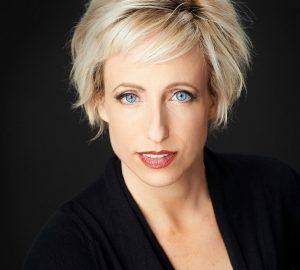
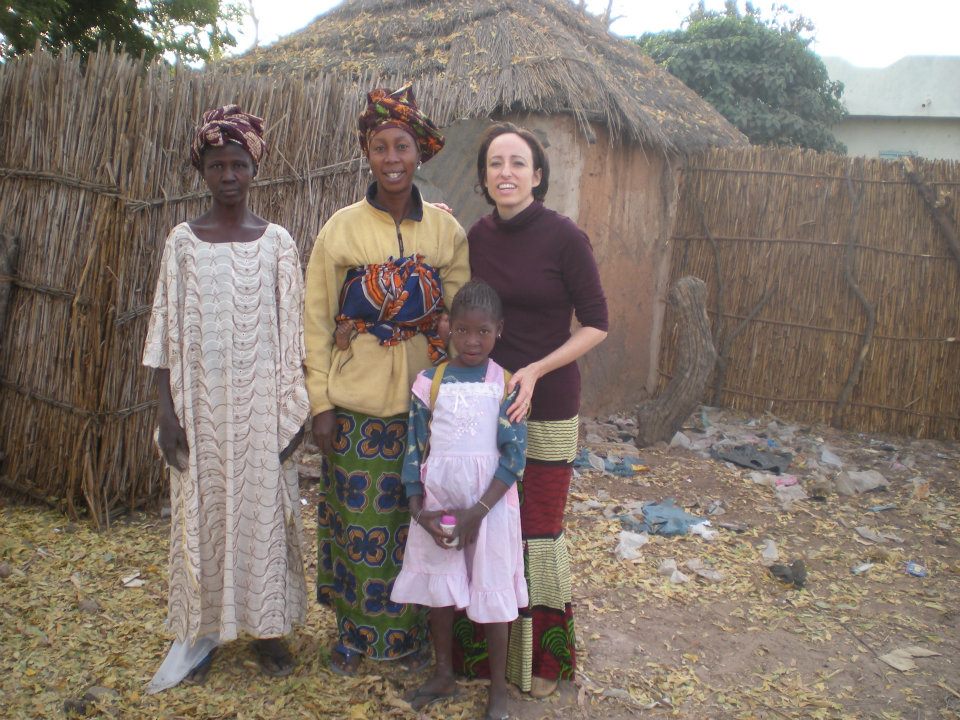
Co-sponsored by: The Roukema Center for International Education, the George T. Potter Library, and the Ramapo Provost Office.
Copyright ©2025 Ramapo College Of New Jersey. Statements And Policies. Contact Webmaster.

Follow Ramapo